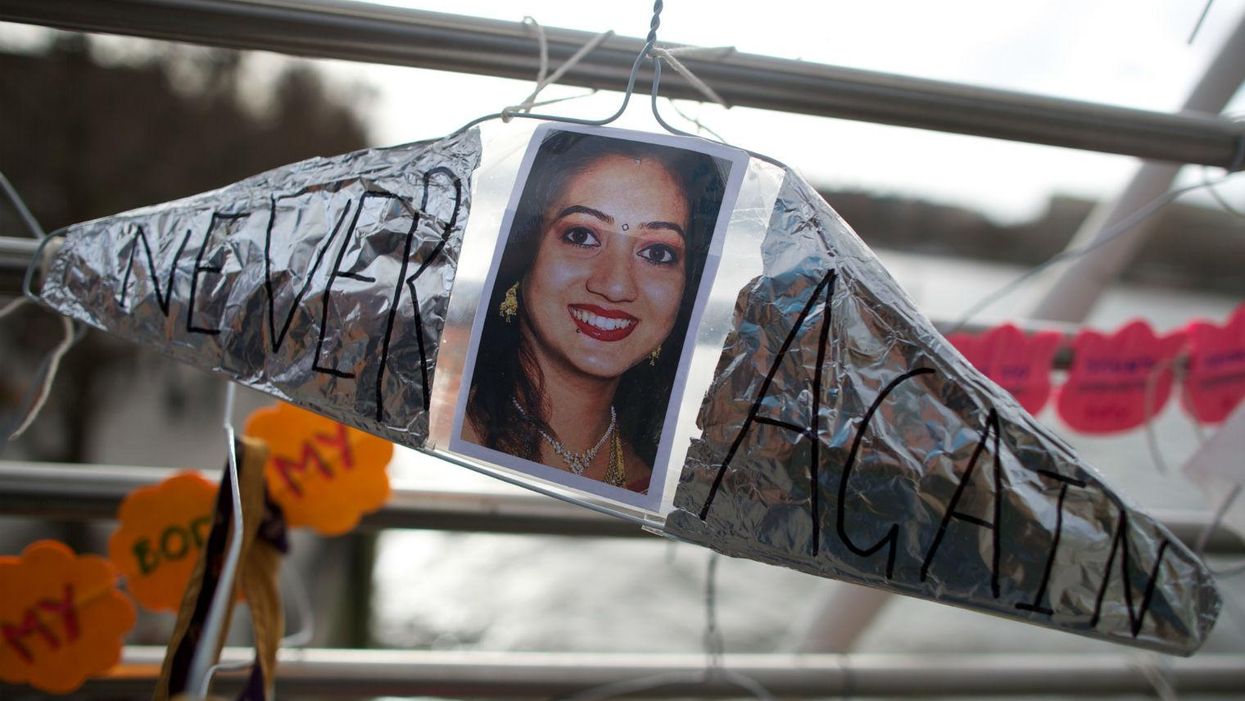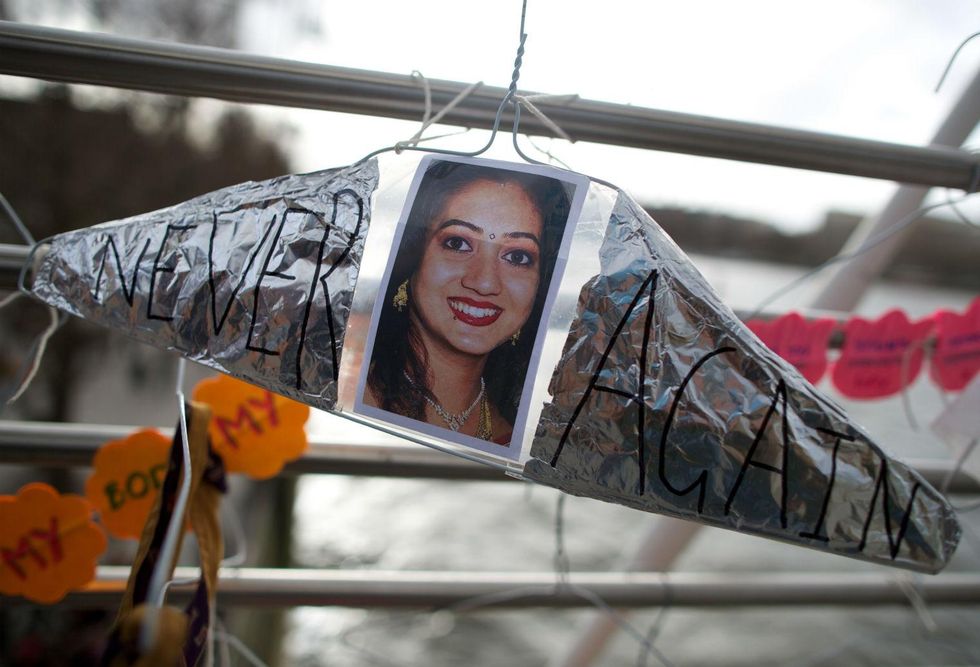News
Bethan McKernan
Jun 09, 2015

Ms Y thought she'd finally reached safety when she fled to Ireland in February 2014 from her country of origin, where she had been kidnapped and forced into sexual slavery by the head of a paramilitary organisation.
She didn't know then that her new home's draconian abortion laws were going to trap her into having a baby she didn't ask for, and drive her to the point of suicide.
The young woman's story, told by her lawyer, Caoimhe Haughey, of C.M. Haughey Solicitors in Dublin, and shared by Amnesty International, is a damning insight into how Ireland's legal system is stacked to deny already vulnerable women access to legal abortion.
While the country has proved that it is open to change thanks to the passing of the recent gay marriage referendum, Ireland is still the only country in Europe in which women can't seek abortions, even in cases of rape or fetal abnormality, unless the mother's life is at risk. The practice was reinforced by an amendment to Ireland’s constitution added in 1983.
According to a new report released by Amnesty on Thursday, at least 10 women and girls a day (4,000 a year) who live in Ireland travel to England, Scotland and Wales for abortions which are not available to them in Ireland - at considerable mental and financial cost.
Pro-choice supporters hold placards in front of the gates of the Irish Parliament building in Dublin on July 10, 2013 during a demonstration ahead of a vote to introduce abortion in limited cases where the mother's life is at risk.But those who have the means to travel are the lucky ones. In Ms Y's case, that wasn't an option.
On arriving in Ireland as an asylum seeker Ms Y realised she was pregnant and the prospect of having to bear her rapist's baby severely distressed her. As it became clear that her options were very limited, her psychological trauma deepened.
Ms Y didn't speak English. She was penniless. She was still waiting on her asylum decision to be processed. And yet she was told she'd have to complete extensive, complicated paperwork in a language she didn't speak and use money she did't have to travel to the UK for a lawful abortion.
In June 2014, doctors who assessed Ms Y noted that she had post-traumatic-stress-disorder and suicidal intent but she wasn't referred for any psychological support or treatment - nor for ante-natal maternity care.
“The clock was ticking... she had no one to turn to," Haughey said.
There were so many agencies involved and she was passed from pillar to post. They all knew of her pregnancy... they knew she was highly distressed and that she was seeking a termination. Nobody was listening to her and there was no intervention.
By July 2014 Ms Y made a desperate attempt to seek an abortion in the UK. On arrival at the border she was arrested, detained for eight hours and sent back to Ireland.
In Ireland she was admitted to a maternity hospital and the possibility of involuntary detention was raised. Her lawyer said she told doctors:
I will kill myself if I cannot get rid of this baby... I don’t want it inside me. I don’t want to discuss it. I don’t want to know about it. I want it out. I cannot continue with this pregnancy.
Ms Y threatened self-harm, attempted suicide, and went on a hunger strike but she still wasn't told of her rights to an abortion under the Protection of Life During Pregnancy Act.
Eventually Ms Y was coaxed into eating and drinking again when doctors told her she could have a termination. Instead, she had a cesarean section, which an obstetrician and two psychiatrists signed off as meeting the requirements for a legal abortion.
Ms. Y was given no choice. I believe that she did not fully understand what was going on. How could she? I believe that she was unduly influenced into accepting the planned caesarean section, otherwise she would be kept in hospital in order to continue with the pregnancy.
- Caoimhe Haughey, Ms Y's lawyer
Ms Y was eventually given asylum and left to pick up the pieces of her life but her treatment by the system has left her with even deeper psychological trauma.
Amnesty International is calling on Ireland to change the law which leads to cases like Ms Y's.
In a statement, Salil Shetty, Secretary General of Amnesty International, said:
The human rights of women and girls are violated on a daily basis because of a constitution that treats them like child-bearing vessels.
The Irish state can no longer ignore this reality, and the appalling impact it is having on thousands of people every year.
- Salil Shetty, Secretary General of Amnesty International
More: These controversial videos reveal the brutal truth about abortion bans
Top 100
The Conversation (0)














